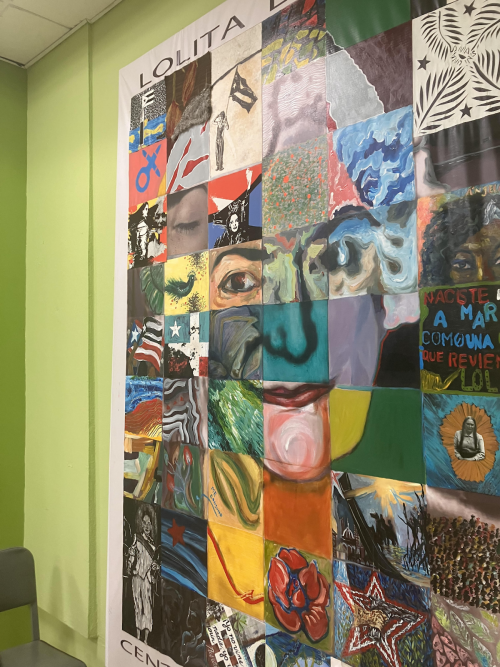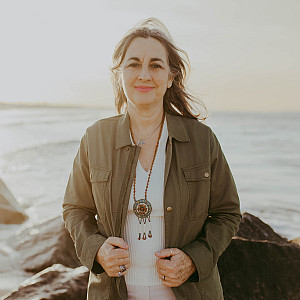Hard Truths: Examining Puerto Rican history through today’s residents
Diego Boyd Lassalle’25 was one of 12 students who traveled with assistant professor of English Michael Dango and the Global Experience office’s Julianne Angeli to Puerto Rico to learn what it’s like to live in the shadow of the U.S. without being able to participate fully in its governance. He offers these reflections.

Credit: Diego Boyd Lassalle’25On March 1, 1954, four armed Puerto Rican Nationalists entered the U.S. House of Representatives in Washington, D.C. Heading to the upstairs gallery, and in full view of Congress, they unfurled the Puerto Rican flag. The group then fired into the chamber, shouting “Viva Puerto Rico Libre!” (Long Live a Free Puerto Rico). As she was arrested, Lolita Lebrón yelled, “I did not come to kill anyone, I came to die for Puerto Rico!” Consistent with other revolutionary movements at the time, Lebrón believed that violence was the only way to call attention to the dire situation Puerto Ricans were experiencing as a U.S. territory.
On May 23, 2023, I and the 11 other students enrolled in the United States from the Margins, a Beloit College Global Experience Seminar, and traveled to San Juan, Puerto Rico, for two weeks of intensive experiential learning. Like most mainland Americans, we had never heard of Lolita Lebrón.
Sadly, this apathy toward the island of Puerto Rico is common. Puerto Rico only makes headlines in the U.S. when natural or man-made disasters befall it — be they hurricanes, earthquakes, or the catastrophic effects of failed economic policies.
Controversial aspects of our country’s history abroad are often discussed in the past tense. My primary motivation to take the course was to examine U.S. history not from within its borders, but from the viewpoint of contemporary residents living in its territories.
To prepare for our onsite studies in Puerto Rico, we spent a week on the Beloit College campus educating ourselves by reading and discussing the works of writers across the greater U.S. “Empire” or territories. For example, in “My Island is One Big American Footnote,” poet and Chamorro language professor Michael Lujan highlights how Guam’s history is ignored in traditional narratives.

Credit: Julianne AngeliOnce on the ground in San Juan, Puerto Ricans taught us that the unjust conditions that Lebrón objected to are still present. However, Puerto Ricans today are committed to finding nonviolent solutions to their social and economic problems.
Juan Dalmau, former presidential candidate for the Puerto Rican independence Party, or PIP, discussed his perspective on Puerto Rico’s relationship to the U.S. with us. We met with artists, professors, and community activists, all of whom were actively addressing the many problems facing the island, while celebrating its vibrant culture and resilience.
A consistent theme emerged. The island’s political status imposes hardships on its residents by limiting its options for economic growth — hardships that are not offset by U.S. aid to the island. As a U.S. territory, Puerto Rico neither has representatives in Congress nor can its residents participate in congressional and presidential elections. However, Puerto Rican culture serves as a source of unity and empowerment when fighting for better economic and political conditions.
One of the benefits of going to Beloit College is gaining new perspectives and the ability to think critically about the larger problems in the U.S. and the world beyond its borders. This training is vital preparation for participating in the challenging civic responsibilities our generation will assume.
Diego Boyd Lassalle’25 majors in art and history.


